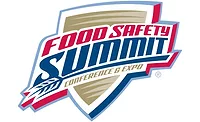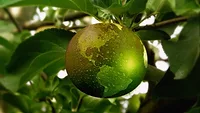Class of 2020 Sustainability Award Winners Announced

The U.S. Dairy Sustainability Awards—which honor dairy farms, businesses, and partnerships whose practices improve the well-being of people, animals, and the planet—have recognized six winners for 2020.
The program is managed by the Innovation Center for U.S. Dairy, which was established under the leadership of dairy farmers (through their checkoff) and dairy companies. Winners represent U.S. dairy’s commitment to sustainability and demonstrate how transparency and ingenuity lead to sustainable and scalable practices that benefit their businesses, communities, and the environment.
More than 70 U.S. dairy farms, businesses, and collaborative partnerships have been honored since 2011.
“This year’s winners add to our rich history of recognizing the true innovators and visionaries of U.S. dairy,” said Dairy Management Inc. (DMI) Executive Vice President of Global Environmental Strategy Krysta Harden. “The program shines a light on the many ways our industry is leading the way to a more sustainable future.”
The awards are judged by an independent panel of dairy and conservation experts who consider innovation, scalability, and replicability when choosing winners. Among the criteria to apply for the awards is participation and good standing in the Farmers Assuring Responsible Management (FARM) animal care program and use of the FARM Environmental Stewardship online tool for determining their greenhouse gas and energy footprint. Both initiatives are part of the U.S. Dairy Stewardship Commitment, U.S. dairy’s social responsibility pledge to consumers, customers, and other stakeholders.
“Now more than ever we are recognizing the value and the fragility of supply chains, and both companies and producers are looking for ways to reduce their environmental impact while building resiliency,” said World Wildlife Fund-U.S. Senior Vice President, Fresh Water and Food Melissa Ho, who served as one of this year’s judges. “These award winners show that the dairy community is actively working to put its commitment to environmental stewardship into action with the ultimate goal of achieving a healthy and sustainable future for people and planet.”
Added Marilyn Hershey, Pennsylvania dairy farmer and chair of the DMI board of directors: “This class of winners once again exemplifies how farms and companies of all size, scope, and philosophy can make a difference that benefits dairy, the planet, and our communities. U.S. dairy is more than rising to the occasion to provide consumers and customers with products and practices that meet their expectations.”
Looking for quick answers on food safety topics?
Try Ask FSM, our new smart AI search tool.
Ask FSM →
The 2020 U.S. Dairy Sustainability Awards winners are:
Twin Birch Dairy of Skaneateles, New York (Outstanding Dairy Farm Sustainability)
Dirk Young relies on a combination of practices to maximize his operation’s resources—from using an anaerobic digester to make cow bedding and crop fertilizer out of cow manure to using no-till and strip cropping in his fields. Young explores ways to better adapt to climate change, and the results of his work are evident. He partnered with an environmental group to ensure good water quality in New York’s Finger Lakes. The findings? Water quality immediately downstream of his dairy farm was generally the same, if not slightly better than, upstream water quality. He collaborates with researchers and elected officials—and the next generation of dairy farmers—on sustainable farming.
Rosy-Lane Holsteins of Watertown, Wisconsin (Outstanding Dairy Farm Sustainability)
Healthy cows and a healthy planet go hand-in-hand at Wisconsin’s Rosy-Lane Holsteins dairy. The emphasis on cow health started with incorporating cattle genetic technologies, breeding cows that live longer and are less susceptible to disease and illness. Genetics has helped the farm produce 1.7 pounds of milk for every 1 pound of feed for the milking herd. The average U.S. dairy attains 1.5, according to Cornell University. Rosy-Lane is at 1.67 for 2019, meaning it produces about 70 more semi-tankers of milk a year using the same inputs as other dairy farms. Another benefit is the farm has not used antibiotics on its milking herd in over seven years.
Threemile Canyon Farms of Boardman, Oregon (Outstanding Dairy Farm Sustainability)
Oregon’s largest dairy farm produces food with little to no waste, thanks to its closed-loop system. This has been achieved in part with setting high standards in animal care and ensuring the wellbeing of Threemile’s employees and their families. Highlights from the operation’s system include: mint harvest byproducts are included in the cows’ feed, manure is used as fertilizer, and its methane digester produces renewable natural gas. It powers natural gas vehicles, which reduce fuel emissions by 80% compared to diesel fuel. And the farm’s reputable internship program ensures dairy community leaders for the future.
Turkey Hill Clean Water Partnership, Pennsylvania (Outstanding Supply Chain Collaboration)
Runoff and pollution from six states including Pennsylvania were severely affecting the Chesapeake Bay’s habitat. Turkey Hill Dairy partnered with the Alliance for the Chesapeake Bay and the Maryland & Virginia Milk Producers Cooperative to bring together local farms and the private and public sectors to help dairy farmers develop and adopt conservation plans to better manage soil and water on their farms. Solutions like modern housing for cows, manure storage, tree planting, stream fencing, cover crops, conservation tillage, and nutrient management will improve the farms’ soil, water and manure management, improving local waterways and the Chesapeake Bay.
Sustainable Conservation, Netafim, De Jager & McRee Dairies, Western United Dairies of California (Outstanding Community Impact)
California dairy farmers are always innovating ways to re-use water. One of those methods includes flood irrigation, where water is applied to the soil surface and distributed throughout a crop using gravity. But applying manure nutrients in this method can be tricky and even pose a risk to groundwater supplies. In 2014, Sustainable Conservation, Netafim and De Jager Dairy got together to develop a new way: a subsurface drip irrigation that uses manure effluent. This system means crops can benefit from manure’s nutrients, which are applied closer to the rootzone for improved growth. It also means less water is applied and drinking water is protected.
Leprino Foods Co.’s Greeley, Colorado Plant (Outstanding Dairy Processing and Manufacturing)
This dairy plant exemplifies environmental sustainability with replicable processes that ensure all precious resources are maximized. Built on an abandoned sugar-processing factory’s site, it relies on a combined heat and power system with electricity from two natural gas turbines—meeting about 75% of the plant’s power needs. The plant also employed technology that uses water from milk during the cheesemaking process to clean the facility, reducing the need for fresh water. Further, that recycled water goes through treatment that results in feedstock for the plant’s anaerobic digester—which in turn creates renewable biogas. This and more adds up to $4.5 million in estimated annual energy cost savings from onsite natural gas turbines after a five-year payback.
Generous sponsors of the U.S. Dairy Sustainability Awards help make it possible to recognize farmers, companies, and organizations for their commitment to improving communities, the environment, and their businesses. The Innovation Center for U.S. Dairy is pleased to recognize the following companies and organizations for their support of this year’s awards program: DeLaval, Zoetis, Phibro Animal Health, Syngenta and USDA.








